-
Affordable Tech Can Help
Affordable Tech Can Help You in the Fight Against Diabetes
While medications exist to help treat diabetes, each individual needs a custom action plan to stay as healthy as possible. Because every diabetic person’s journey is so variable, there’s no one-size solution for anything. Fortunately, technology offers users the unique opportunity to track what matters to them. You can receive timely advice on nutrition and lifestyle questions and take control of your diabetes — all with budget-friendly tech. Here are a few ways tech can contribute to your health so that you live your healthiest, sweetest life.
Choose the Right Fitness Device
For many people with diabetes, both type 1 or type 2, exercise is paramount. It helps regulate your blood sugar and can make your body more sensitive to insulin. But if you have trouble getting active, a fitness device can provide motivation and accountability.
A fitness tracker not only works as a tool for your workout regimen, but it can also help you monitor your health. Smartwatches like the Apple Watch detect falling incidents and activate an emergency system if you’re unable to get back up on your own. Other models like the Fitbit Versa 2 include a heart rate monitor and can keep track of what you eat and how much water you drink.
Even the ubiquitous smartphone is a nifty fitness tool. Furnish it with the right fitness apps, and you can pretty much exercise anywhere you want. For instance, you can get a portable stand to mount your phone on and fire up YouTube for a quick yoga session in your bedroom. And snag a few workout pieces from Anna PS; the built-in pockets allow you to keep your phone — or pump — handy during your exercise sessions and beyond.
Use Apps for Low-Cost Support
If you already have a continuous glucose monitor (CGM) or diabetic pod device, you may use apps to sync data and adjust your insulin delivery. Devices like the FreeStyle Libre communicate via your smartphone to report blood sugar levels and trends.
Beyond apps specific to your medical devices, other tools can support diabetes education and treatment. As the American Diabetes Association notes, checking your blood sugar is essential to effective diabetes management, so most tools include blood sugar tracking or charts. Noting factors like stress levels, activity, and foods eaten can help create a bigger picture of your health, too.
To help with tracking, check out free or low-cost app options like:
- Glooko, which syncs with your medical device, tracks exercise information, and provides nutritional information for reference (IE carb counts).
- BG Monitor, which helps track carbohydrates, calculate insulin amounts, and create reports you can share with your doctor or family.
- Glucose Buddy, an app and website that helps you track and report trends, record nutrition, and exercise, and communicate with other people with diabetes in forums.
Take Supplements to Help with Weight Loss
While severe weight loss can be a sign of diabetes complications, maintaining a healthy weight is crucial for people with diabetes. Sometimes, though, losing weight can seem nearly impossible. But for people with pre-diabetes or even the early stages of type 2, Endocrine Web notes even a 10 percent weight reduction can mean huge health improvements.
Continuing to check your blood sugar, managing your diet, and exercising are all smart steps toward better health (and weight loss). You can also add healthy supplements to encourage weight loss. As The Healthy explains, certainsupplements can help you ward off ailments while achieving a healthier weight. Omega-3s, for example, can reduce your risk of heart disease, which is heightened with diabetes. Extra fiber — like that found in psyllium — can help you manage blood sugar better, too. Supplements with high protein levels may also help you level off your blood sugar.
Whatever supplements you choose, note that affordability isn’t always an indicator of quality, so keep this in mind as you shop around. Of course, you should always consult your physician or nutritionist before adding a supplement to your routine since these can significantly affect your blood sugar.
While struggling to manage the condition can be emotionally draining, there are ways to make life easier. Harnessing the power of technology (and doing so affordably) can help make tracking blood sugar and reading labels not so intense. With apps, technology, and tools at the ready, you have a better chance of navigating this condition and not letting it hold you back from living the life you want.
Photo via Pexels
-

-
-
- Choose currency:
-
- Language:
-

-
